Normal Beginning Sounds Worksheets for Ages 3-9
13 filtered results
-
From - To
Welcome to our collection of Normal Beginning Sounds Worksheets for Ages 3-9! Tailored to enhance early reading skills, these printable resources help children identify and pronounce initial consonant and vowel sounds with ease. Engaging and interactive, the worksheets feature vibrant images and relatable scenarios to capture young learners’ attention. Perfect for homeschooling or classroom activities, our expertly-designed worksheets provide a fun and effective way to build foundational phonics skills. Spark your child’s curiosity and confidence in reading while making learning an enjoyable adventure. Visit Kids Academy for diverse and age-appropriate exercises to support your child’s educational journey.


Phonics and Word Recognition: Assessment 1 ELA Worksheet
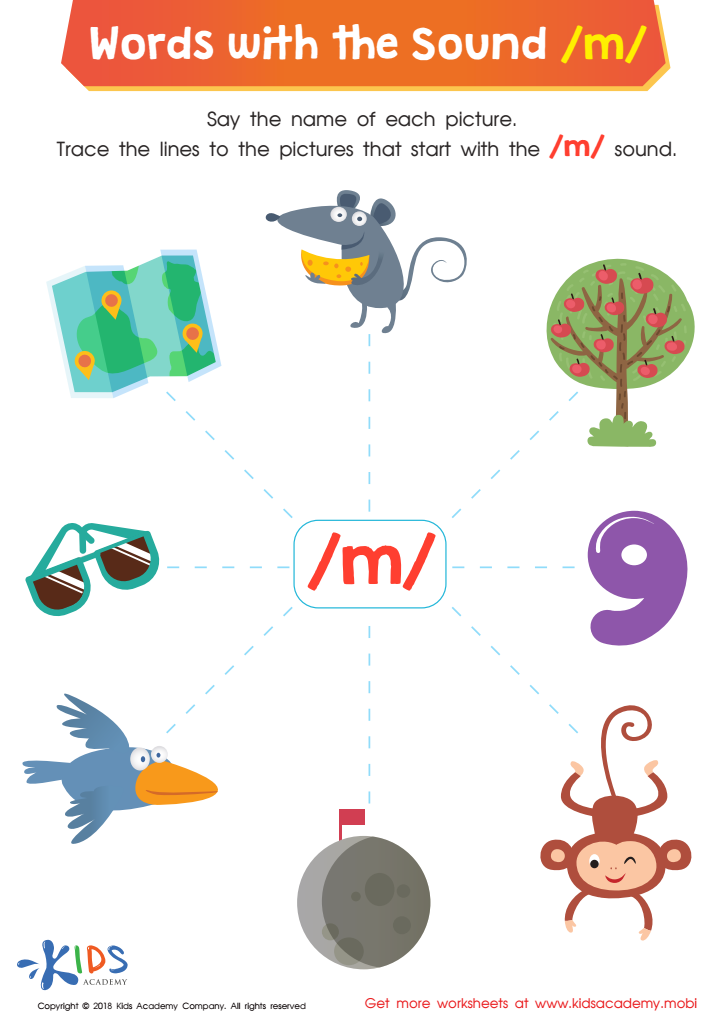

Words with Sound M Reading Worksheet
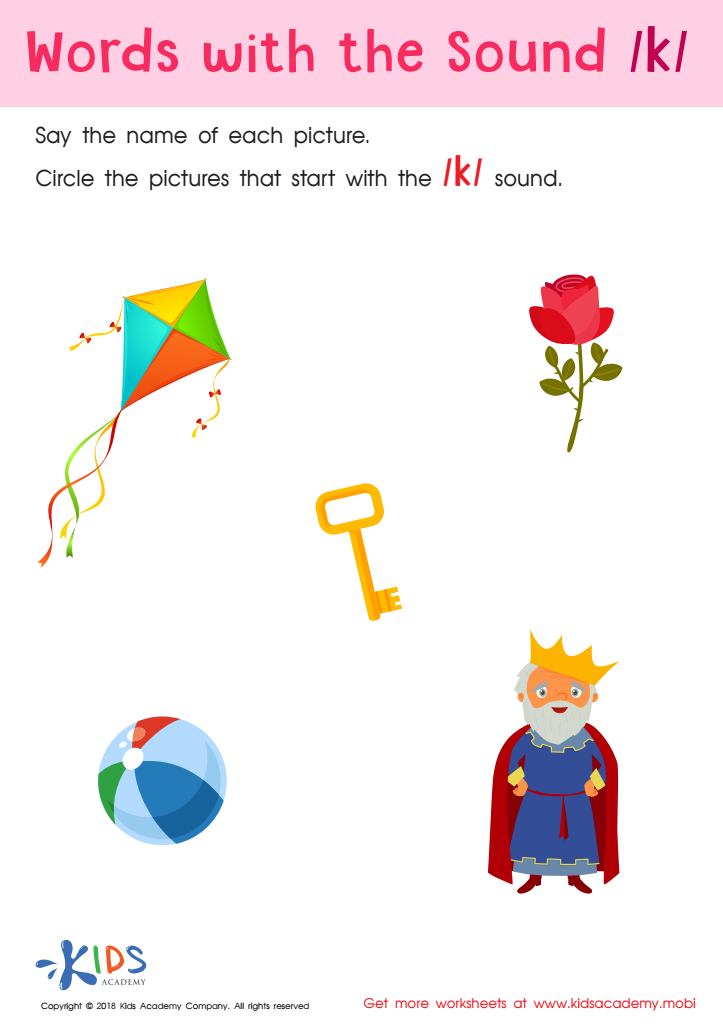

Words with sound k Reading Worksheet
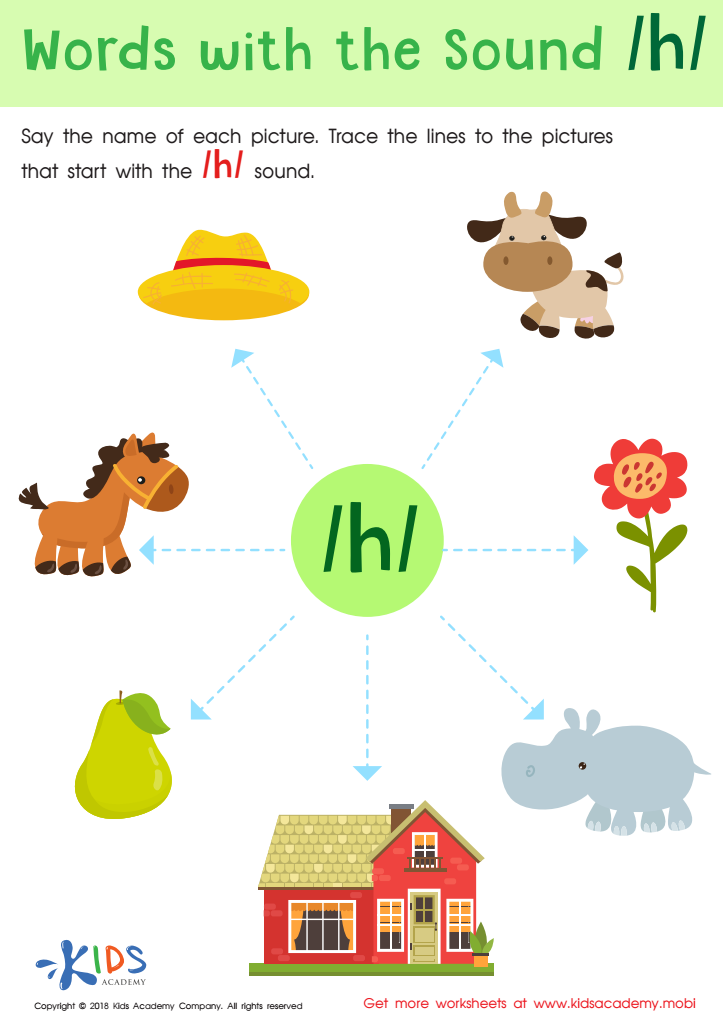

Words with sound h Reading Worksheet


Words with sound p Reading Worksheet


Words with sound f Reading Worksheet
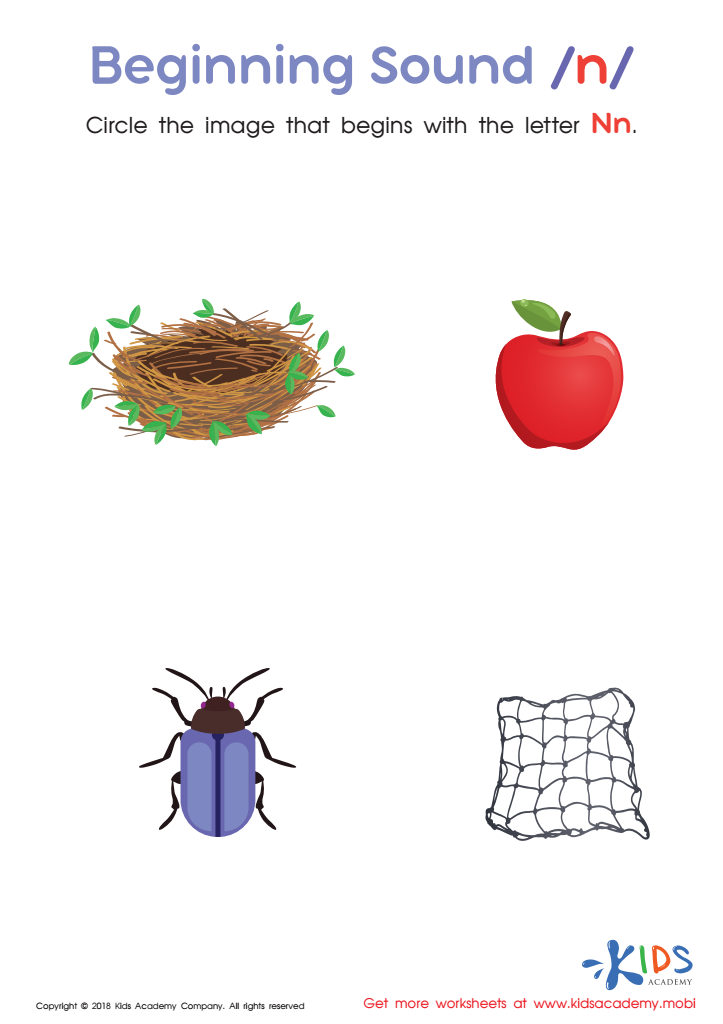

Beginning Sound «n» Worksheet


Twin Onset Worksheet
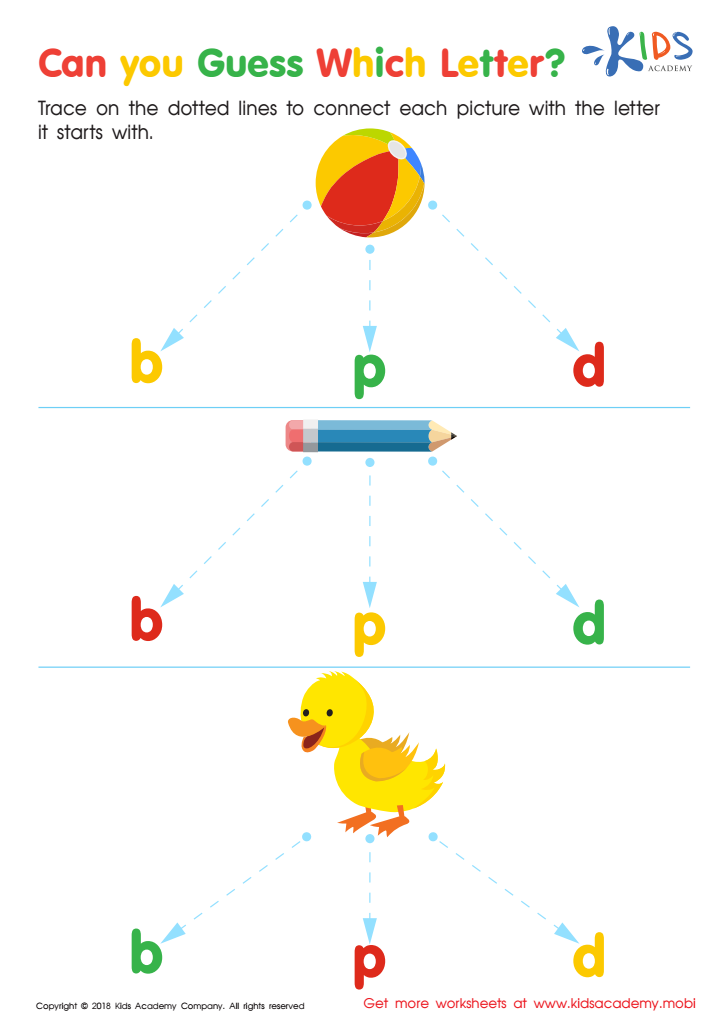

Can you Guess Which Letter? Worksheet
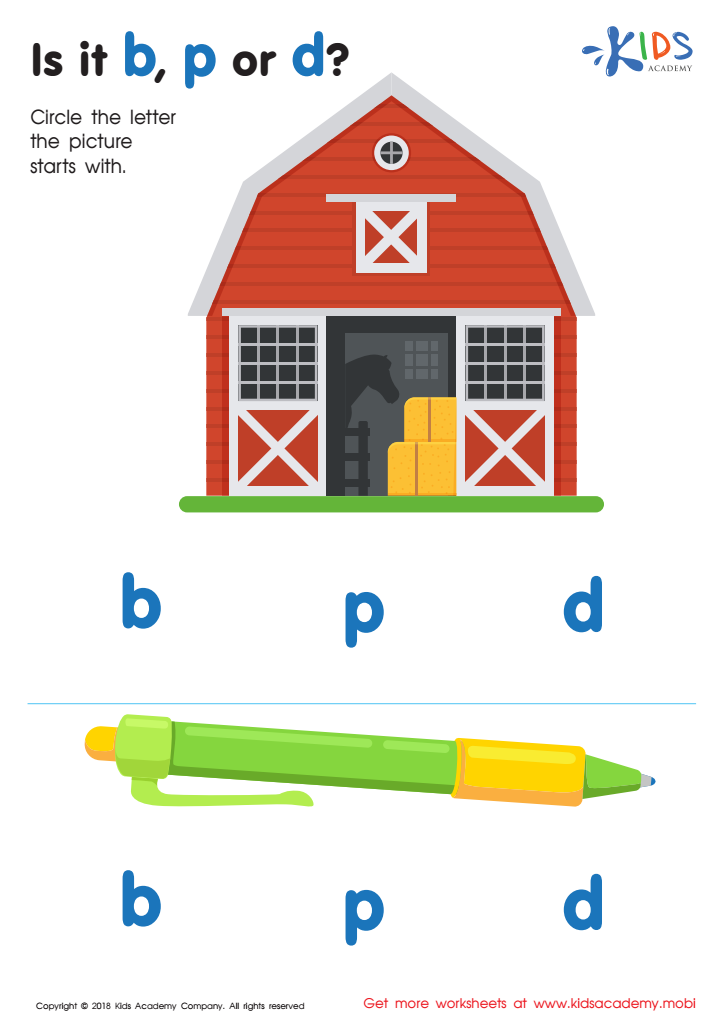

Is it b, p or d? Worksheet
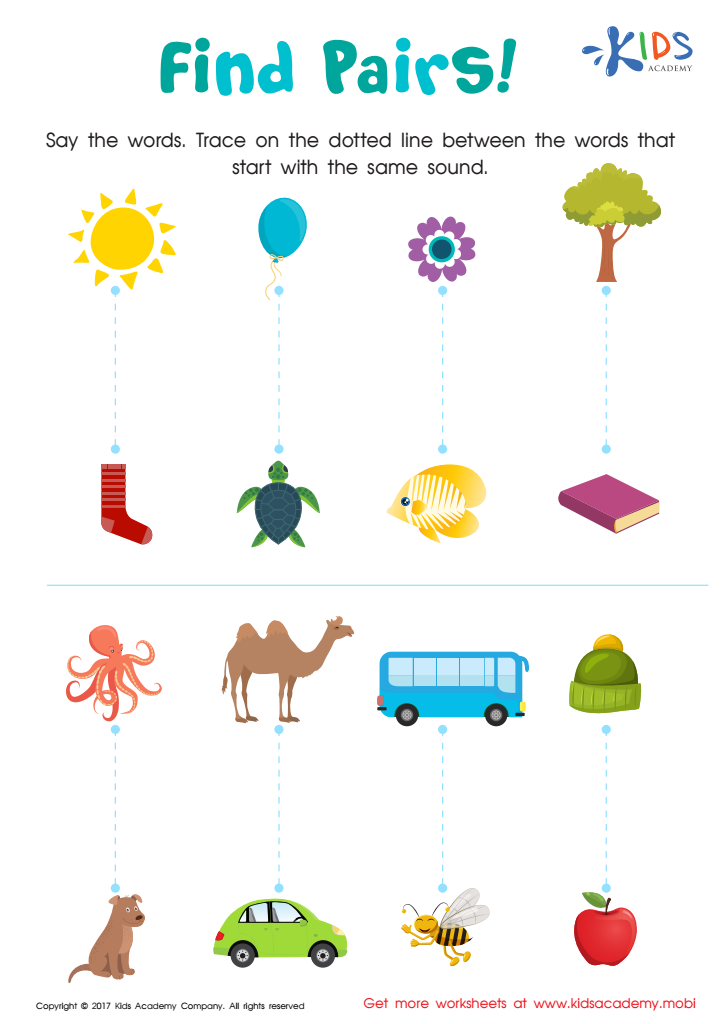

Beginning Sound: Find Pairs Worksheet
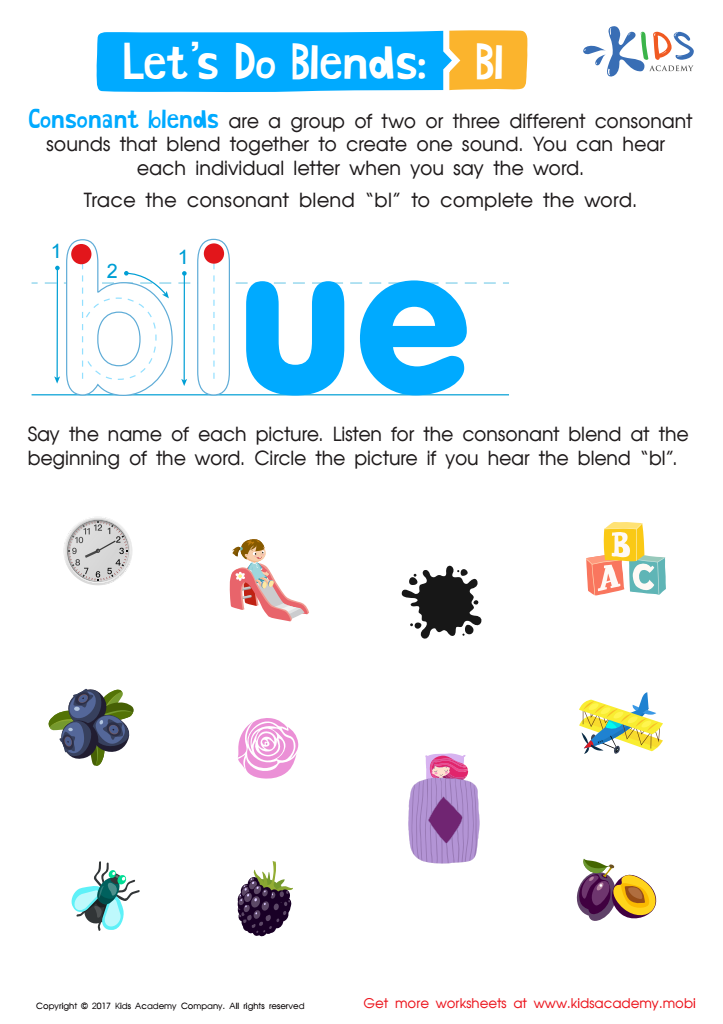

Beginning Blends: "Bl" Words Worksheet
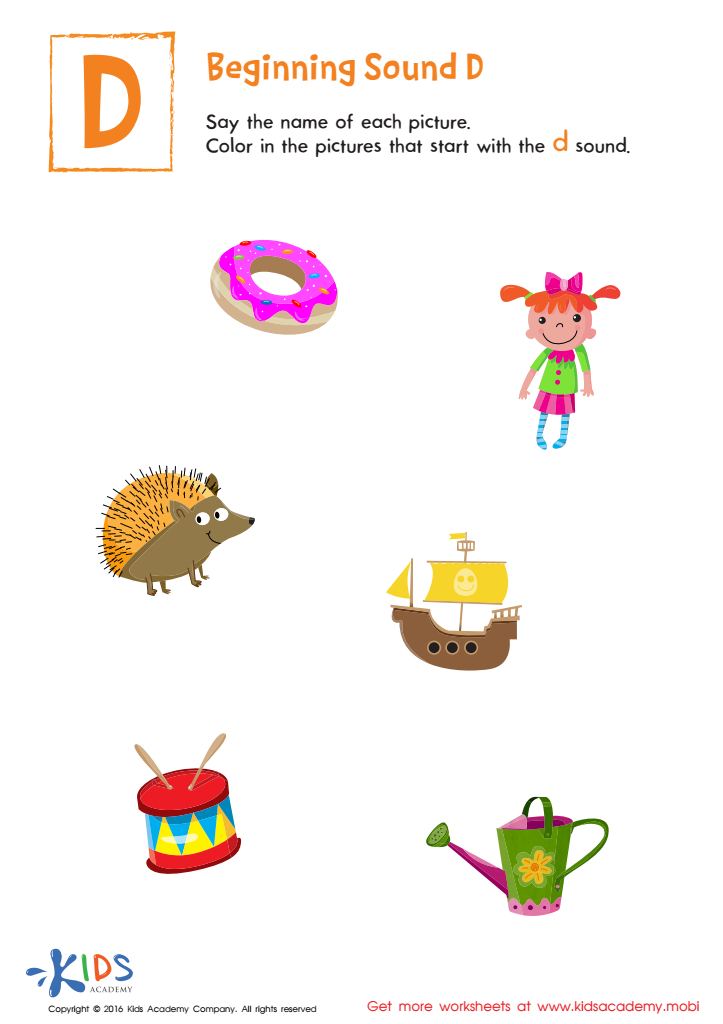

Beginning Sound D Worksheet
Normal beginning sounds, or initial phonemes, are foundational building blocks in early literacy skills for children ages 3-9. Parents and teachers should be deeply invested in ensuring children master these skills because understanding and pronouncing beginning sounds are crucial early steps in the process of learning to read and write. Phonemic awareness, which includes the ability to recognize and manipulate sounds in words, supports decoding abilities, spelling, and ultimately reading comprehension.
At this pivotal developmental stage, children's brains are particularly receptive to language acquisition. By focusing on beginning sounds, children can learn to visually and audibly segment words, making them easier to read. For instance, understanding that the word "cat" begins with the sound /k/ gives a child the tools they need to both recognize and produce the word on their own.
Furthermore, early mastery in this area boosts children's confidence and encourages a positive attitude towards learning. Literacy skills are cumulative; gaps in early stages might compound, leading to future difficulties that can affect academic performance and self-esteem. By prioritizing beginning sounds, parents and teachers set a strong foundation for children's educational success, making it an essential focus in early childhood education.
 Assign to My Students
Assign to My Students






















